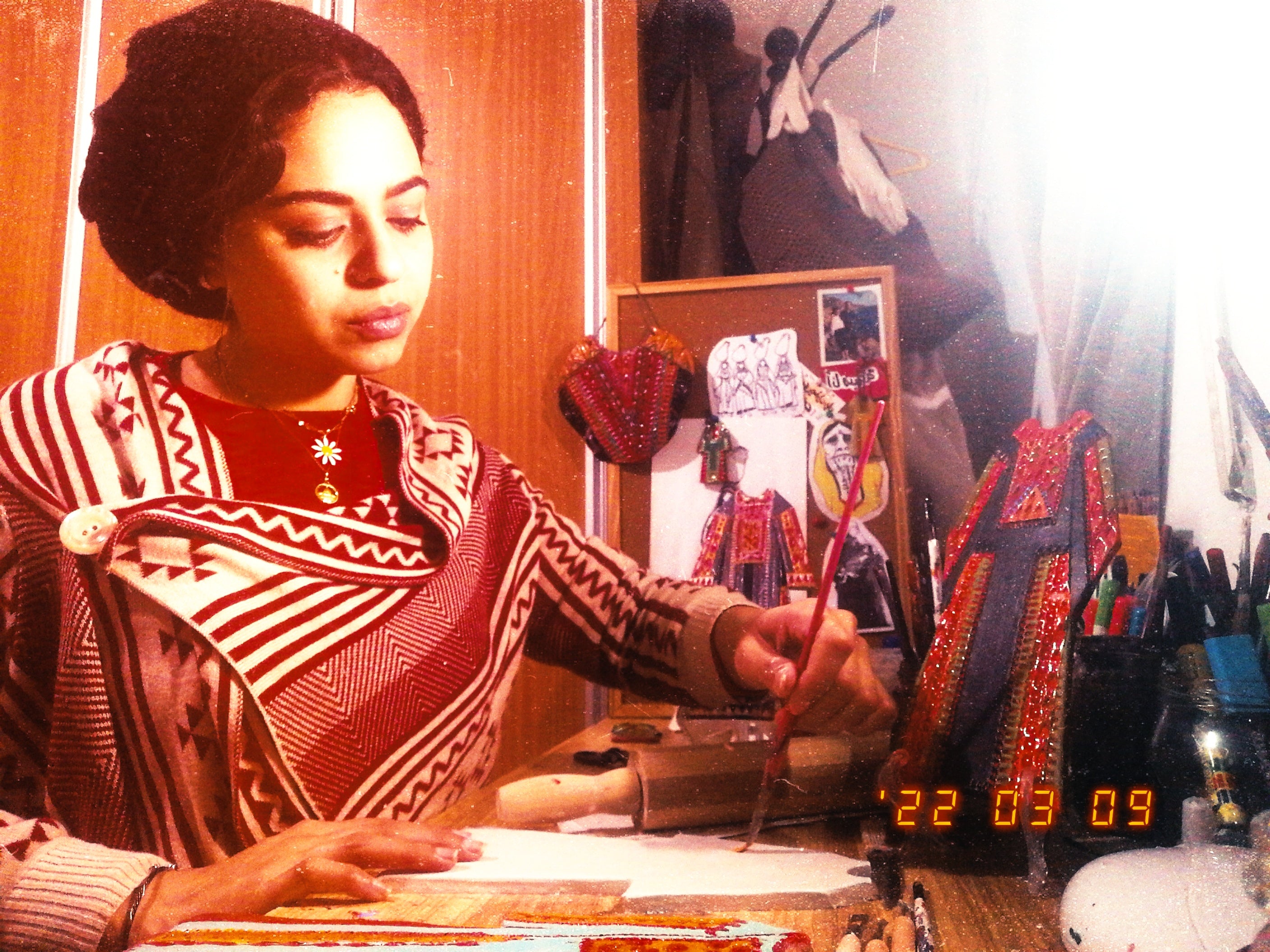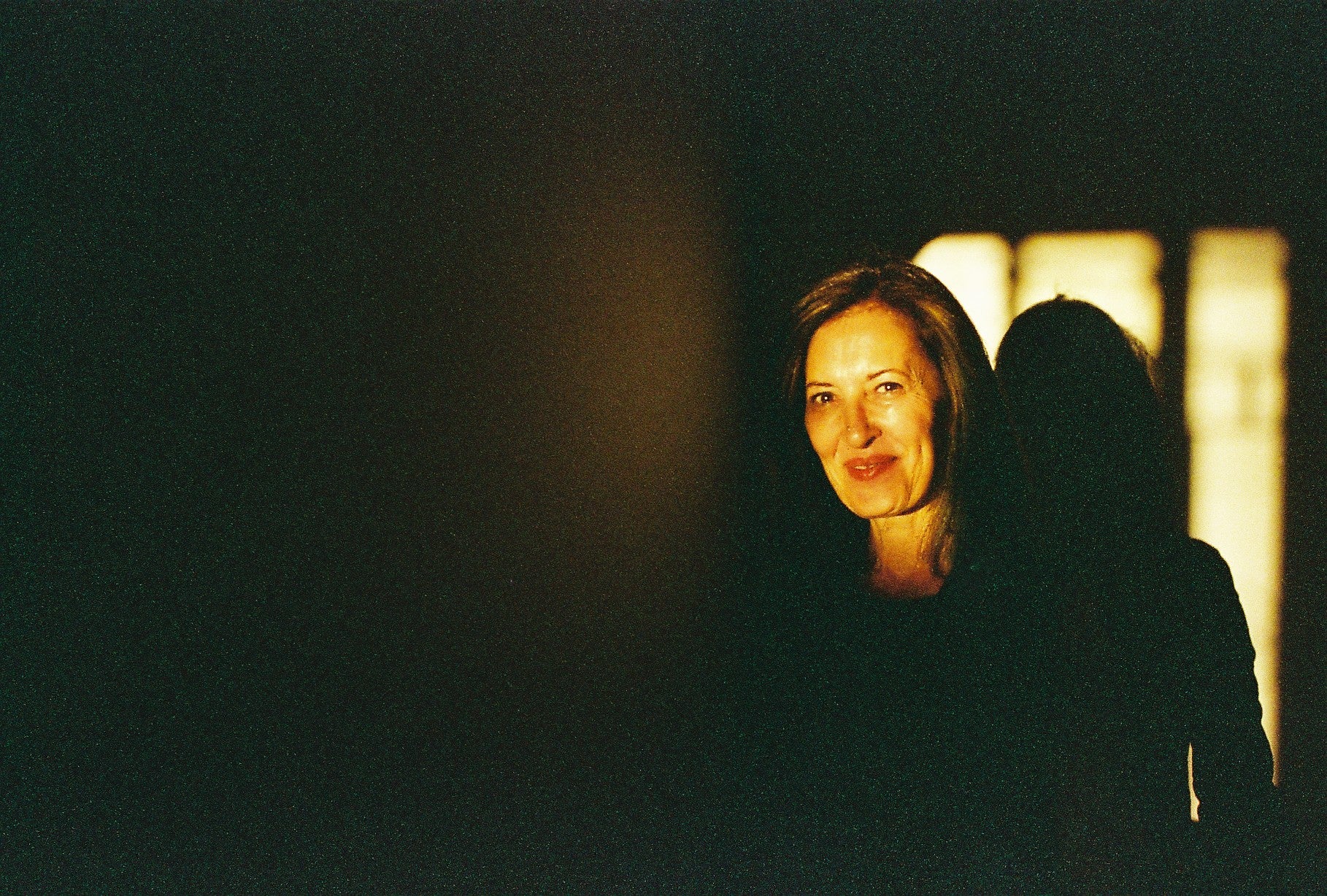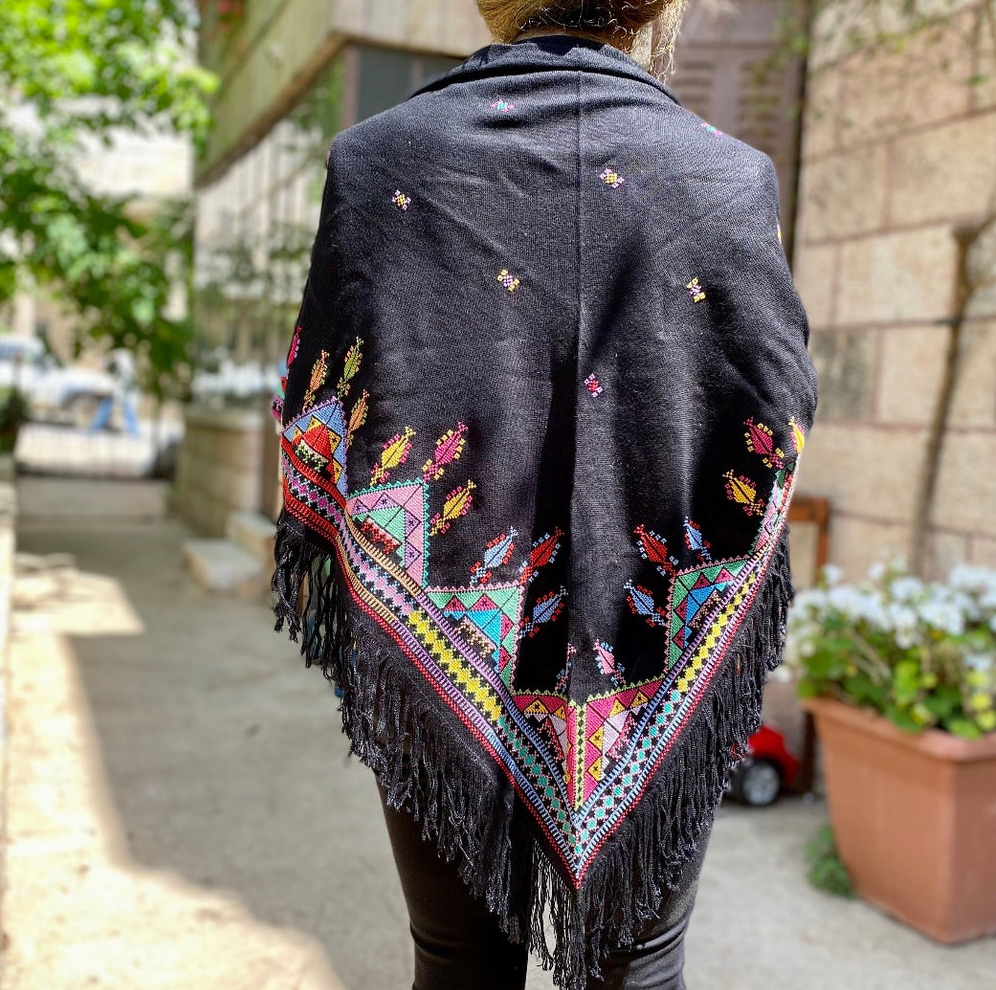
DAUGHTER OF THE SUN | Bint el Shams
What is formed with clay, smoothed with water and baked under the Palestinian sun?
A one-of-a-kind thobe by artist Shatha Safi.
Shatha Safi has a knack for giving traditional symbols modern appeal. She’s best known for her drawings which meld heritage with hipster: two ghazals touching horns before a golden sun; a mirror image of a mosque, flanked by palm trees; an elderly woman with traditional tattoos on her chin, smoking a cigarette. “I want our generation to have this connection with our past, in a new and fashionable way,” Shatha said. But her artistic themes are guided by loss as much as love.
Shatha, whose art finds inspiration in her fathers’ life, only began sharing her work publicly after his death. In Shatha’s family, her father was the caretaker of stories. He was five years old when the Nakba forced his family off their farm in Jrash. He spent the next five years in a tent in the Dheisheh refugee camp, learning and relearning, about the life he was born into, the life that was lost. His stories of Palestinian resistance and resilience shaped Shatha’s sense of home, and her sense of self. After he passed, she began worrying about her memory, and about the collective memory of her generation. “I felt like our heritage and our traditions will disappear because everyone is dying!”

She had, for years, archived her father’s memories by sketching them, privately. With her father’s passing, she felt the need to release his memories into the world, to allow them to have a life apart from her. She began to post sketches on instagram. Within months she was invited to exhibit them in a gallery.
When her father was near death, Shatha found herself with a visceral, aching desire to see the thobes of her grandmother who had died a decade earlier. Her grandmother, like many women of her generation, had worn the thobe daily. In her Grandmother’s home, and on her Grandmother’s body, the thobe was a feature of Shatha’s life. But since her grandmother’s death, she seldom encountered one. Thobes, she realized, were becoming relics of the past. She wanted the thobe to be something she saw every day, “To remind me that this is us. This is still an important aspect of being Palestinian.” She sculpted a thobe out of clay and painted it from memory. Rather than firing it in a kiln, she let it bake under the sun for four days. Then she made another, and another.

Shatha named the project, Bint el Shams, or “Daughter of the Sun.” The name reflects both the creation process, and also references skin color. “We are samr,” Shatha said. “ We are fellahin, we used to farm in the sun so our skin is dark.” The clay thobes are baked under the same sun that darkened the skin of Palestinian grandmothers who wore them. Each Bint el Shams thobe is handmade, and each is one-of-a-kind.

Shatha’s first thobes were products of her imagination but more recently she’s turned to research. She studied a historic photograph of Bethlehem women for her Telhami thobe. She’s made thobes from Akka, thobes from Haifa, but each village in Palestine has its own unique pattern, and tracking down photographs isn’t always possible. It’s common for Shatha to receive commissions to recreate the thobes of deceased family members, thobes of which no living record exists save for memories. She receives messages over instagram: “My grandmother wore a white thobe….” and “I want you to create my mother’s thobe.” In these cases, Shatha combines the recorded memory with what she’s learned through her research about patterns and their connection to geographical locations. “People have this nostalgic feeling. They want a particular thobe back. They want to see it. They want to see it every day.”
Bint el Shams has become for Shatha more of a duty than a hobby. “It’s a form of resistance… I feel like it is a duty for me to carry this heritage and give it to the people and our generation to continue. I think that if a Bint el Shams thobe can hang in someone’s house for, maybe 50 years…then I’ve done something,” Shatha said.
When asked if she wears a thobe Shatha said, “I have thobes from my mother. But I only wear them on special occasions. I hope one day, I will wear them every day. If I have kids, I want them to see me wearing a thobe.”
Shop her full online collection here.






Leave a comment
This site is protected by hCaptcha and the hCaptcha Privacy Policy and Terms of Service apply.